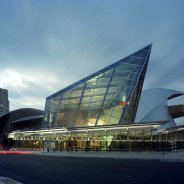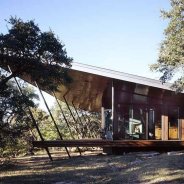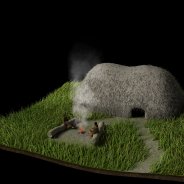Famous Buildings
Art buildings
Time Equities Inc. (TEI) is committed to enriching the experience of our properties through the Art-in-Buildings Program, an innovative approach that brings contemporary art by emerging and mid-career artists to non-traditional exhibition spaces in the interest of promoting artists, expanding the audience for art, and creating a more interesting environment for our building occupants, residents, and their guests. Contemporary art exhibitions in non-traditional spaces TEI founded Art-in-Buildings (AiB) in 2 at the Maiden Lane Exhibition Space at…
read moreFamous English buildings
List of famous buildings in the English Gothic architecture movement, listed alphabetically with photos when available. This list of English Gothic architecture buildings, structures and monuments includes information like what city the structure is in, and when it was first opened to the public. There are a lot of historic English Gothic architecture structures around the world, so why not save some money and check them out here without having to pay for travel? These popular English Gothic architecture buildings attract visitors from all over…
read moreFamous buildings in London
30 St. Mary Axe is a 40 story building in the St. Mary Axe area of London. It is recognised as one of the more distinctive skyscrapers in the financial district of London and it stands on the former site of the Baltic Exchange building. Its form is so unique, that it has been given the nickname the Gherkin. Architect The building was designed by famed architect Norman Foster of the Foster and Partners architectural firm. The Foster and Partners firm has worked on such renowned buildings as the renovated Reichstag in Berlin, London City Hall, and…
read moreFamous buildings in History
The Colosseum (or Coliseum) was started by Vespasian (AD 9 - 79) on becoming emperor in 69 AD. It was built on the site of Neros Golden Palace in order to give the land back to the people having been acquired by Nero following the great fire of Rome in 64 AD when the previous amphitheatre was destroyed. Vespasian never saw the amphitheatre completed as he died in 79 AD. It fell to his sons, Titus and then Domitian to complete the project. Rome is about 2600 years old, and during this time, layers of buildings and roads have accumulated, with many…
read moreRIBA Building
The construction industry operates within a linear economy of make, use, dispose. Buildings are stripped out and torn down with astonishing regularity while new buildings are constructed from hard-won virgin materials. But raw materials are becoming scarce, and the demands for them are exploiting fragile ecosystems, even as the global demand for resources continues to rise. Policy makers and organisations are beginning to look for a more regenerative, circular economy model. The construction industry demands over half the world’s extracted materials…
read moreFamous buildings in Britain
By building high, the architects give weary-eyed visitors views over the town - and give their building a presence on the skyline comparable with Walsall s other, principally 19th-century, civic monuments. The collection on display was drawn largely from a private bequest and the galleries are scaled to reflect the domestic environment in which it was formerly shown. 3 Lisson Gallery, London (Tony Fretton, 1992) What distinguishes this commercial gallery in west London is its democratic relationships to the extremely varied surroundings. The principal…
read moreHouse-- On the Go
With wheels, traditional proportioning and archetypal form, these revolutionary RVs are designed to be portable while providing maximum comfort. Sizes range from about 117 to 172 sq ft and include a full kitchen, bathroom, sleeping area, main room and more. We deliver to your door or help you build your own with our plans, trailers and barn raisers. Where can I put it? A Tumbleweed Tiny House is a Recreational Vehicle(RV), so you can put it wherever you would put an RV. How do utilities work? Tumbleweeds come with standard RV hookups for water and…
read moreBuilding History UK
The course, devised in collaboration with English Heritage (now Historic England), is unique in combining British architectural history with practical tuition in interpreting building fabric. It provides an overview of architectural evolution and an awareness of the principal approaches to the exploration of architectural evidence. It also sets out to train students in the rigorous and effective use of primary sources, preparing them for careers in historic building research, recording, assessment and curation, or in suitable cases, for progression…
read moreArchitecture Definition
In information technology, especially computers and more recently networks, architecture is a term applied to both the process and the outcome of thinking out and specifying the overall structure, logical components, and the logical interrelationships of a computer, its operating system, a network, or other conception. An architecture can be a reference model , such as the Open Systems Interconnection (OSI) reference model, intended as a model for specific product architectures or it can be a specific product architecture, such as that for an Intel…
read moreMackintosh Building
Since a major fire in May 2014 seriously damaged The Glasgow School of Art’s Mackintosh building, our visitor experience has changed and adapted significantly, with a new visitor centre open 7 days and 4 diversified tours led by our award-winning team of talented student guides. Whilst restoration work means there is no access to the interiors of the Mackintosh building, we continue to welcome visitors to experience the history of this architectural masterwork, architect Charles Rennie Mackintosh, our unique collections of furniture and the contemporary…
read more









